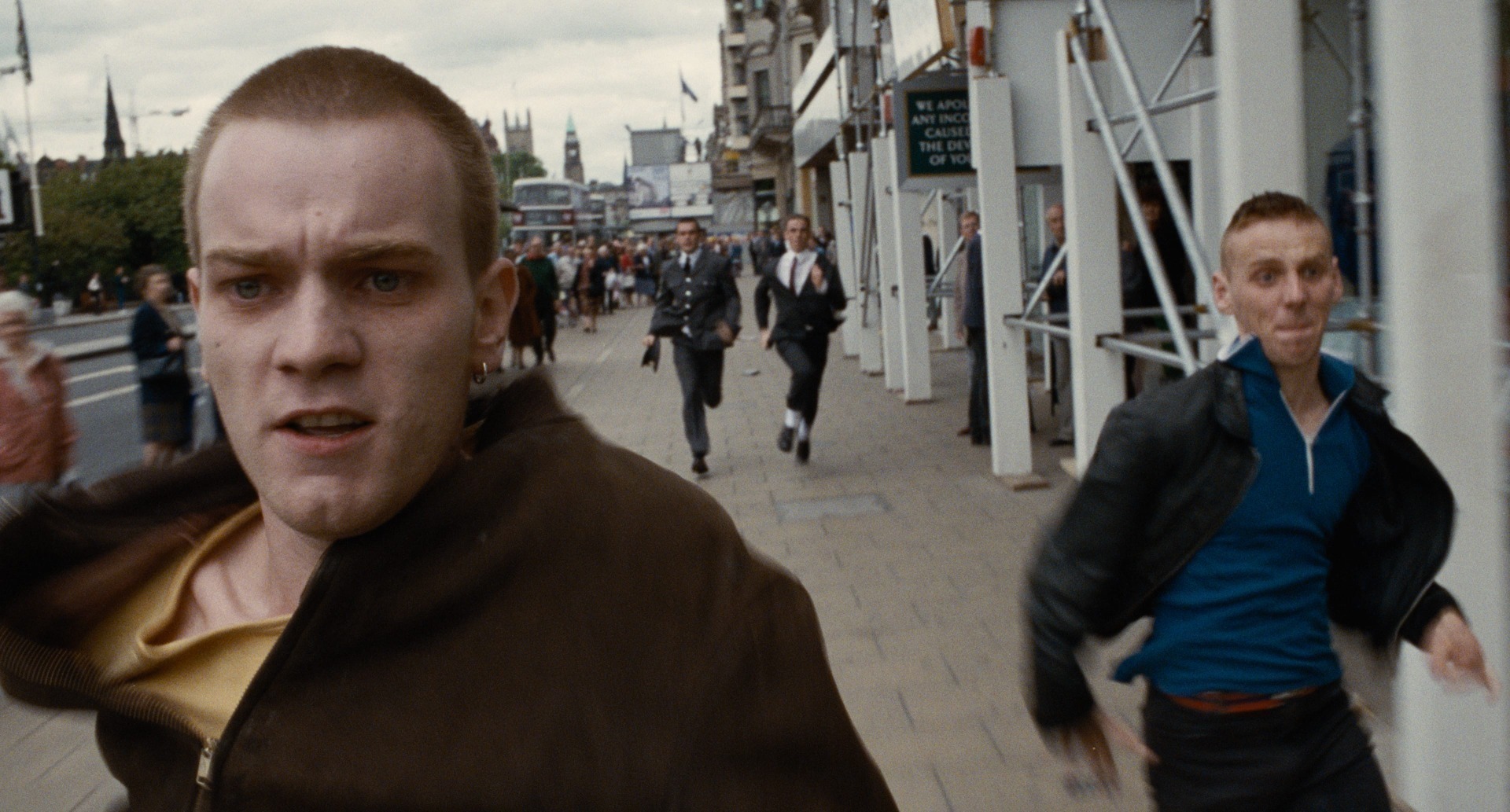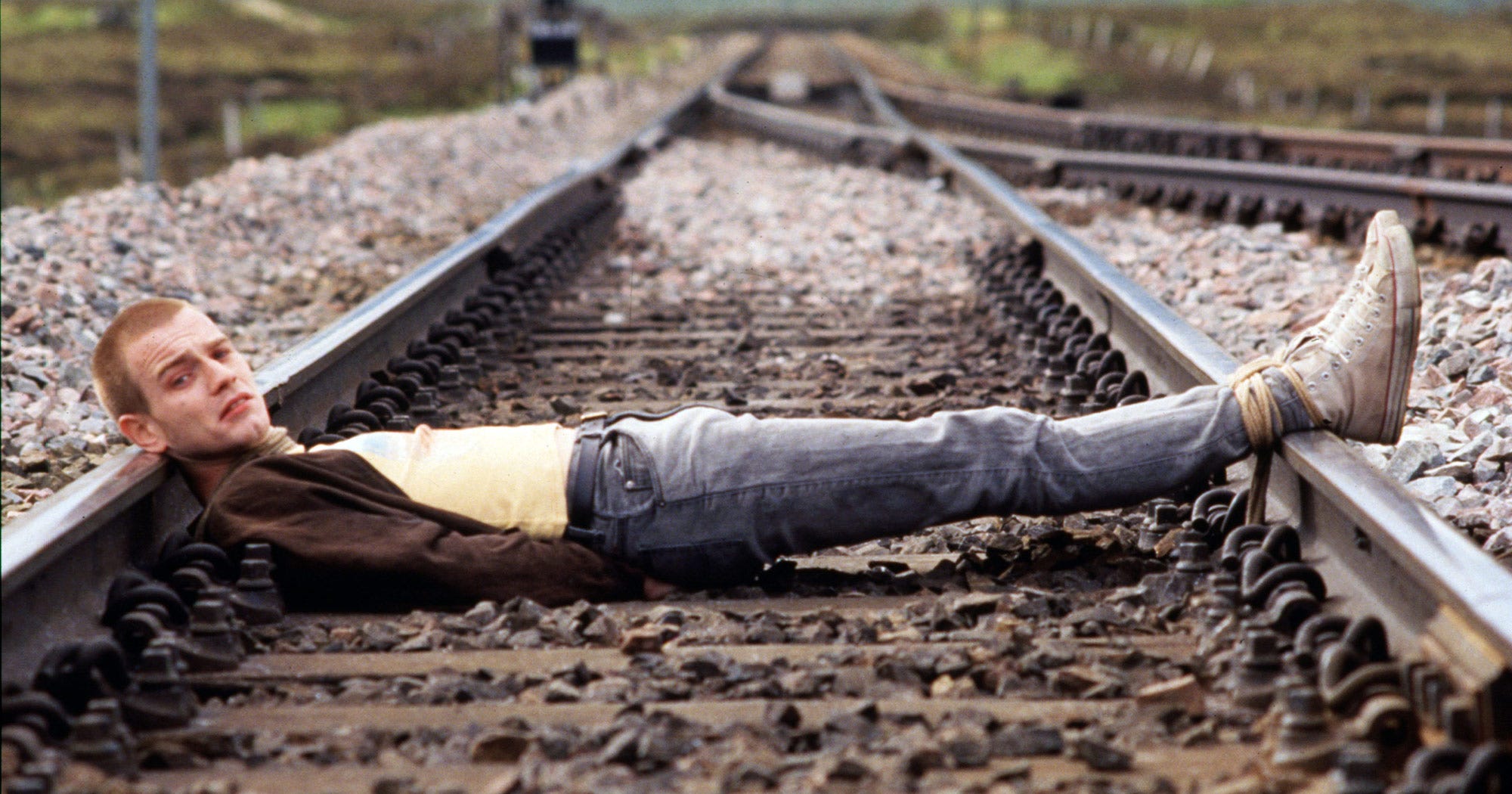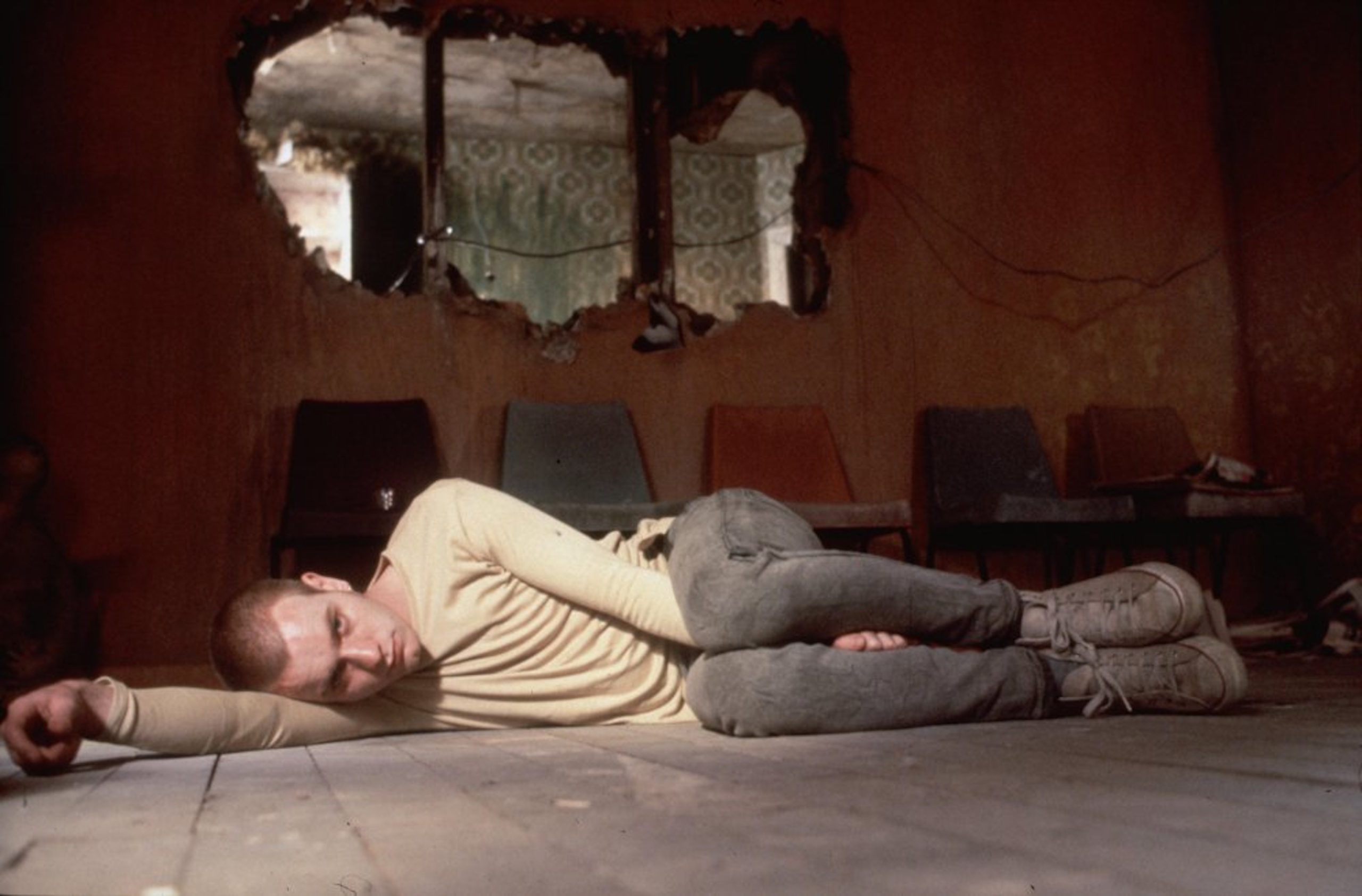Trainspotting
Alright. So, people have been struggling to cope with the meaninglessness of life for a while, anddd much has been said about how (a)moral, (in)effective, and (im)permanent drugs can be as a means of tackling this dilemma. Now, before I continue I just wanna acknowledge maybe there is a meaning, maybe there is a god, maybe we'll figure it out someday. However, this film is interested in the people in contemporary society who have ~in one way or another~ spent meaningful time coping with the idea that maybe that's not what's going on around here. The person who authored the novel, directed the movie, and wrote this review all fall under this subset of individuals existing in a world devoid of true meaning (but like I'm pretty chill with it I think - I just try to constantly escape reality, and I'm good at it 99% of the time haha). (BUT), and yes I expertly crafted this transition, the idea of how we distract and delude ourselves in order to feign satisfaction/meaning is the core conflict of this dope ass movie.
**on soapbox**
Ya know, you and I, the workers of the world, we've never really been granted the time and freedom to explore the existential crises that plague humanity. SURE, some brave outcasts have ventured beyond the limitations of their socioeconomic structures to pursue these aims. We revere them! You got Siddhartha Gautama, Jesus Christ, Henry David Thoreau, Frankenstein's monster (not really by choice I suppose), et CETERA. I mean, clearly we all at least subconsciously admire their audacity to actually do the thing that we all think might help us figure some of this stuff out. We fantasize about the truths we really, really hope they were able to uncover given the time and freedom they allotted themselves. I'm trying to tie this into the idea that we mythologize such acts due to how difficult it is to envision ourselves living outside of our current society, let alone actually do it. Furthermore, this fantasy is an admission of the limitations imposed on us by our culture. I'm sure you're connecting the dots and encouraging me to bring drugs into this equation, but I did NOT lose track of the other, related, method of pseudo-escapism (or whatever) that this movie has more than one thing to say about: consumerism!! 😁

Somewhere along this line, the great minds of the world held a conference and voted unanimously that we figured it all out forever. It was universally acknowledged that Adam Smith, through divine intervention (one can only assume), blessed us with the only true economic model, capitalism, and that no questions would be necessary until the end of time (not including, of course, the 50 year cycles where we're mandated to flip-flop between more/less government intervention to get the working class to either shut up about being so poor or stop reaping the benefits of imperialism) (i'm sorry, in all seriousness its actually a complex, efficient system with plenty of other mechanisms used to strip the working class of autonomy). **just assume I'm still on my soapbox until told otherwise**
Fine. **otherwise (kind of)**
But this bequeathed upon the average Joe a new method of quantifying the significance of their existence. We consume in pursuit of fulfillment. We assign value to the amount of things we're able to consume because that means that we contributed to society which should help us feel like we matter. Of course, we also consume to distract ourselves from the non-consumable things out there. The movie TRAINSPOTTING thinks this is all a load of bullshit. 90s art exudes a sense of “this is all bullshit” due to-[cutting myself off]. Trainspotting's incredible opening sequence bemoans the boredom and insignificance of a consumerist lifestyle, and it presents the hypothesis explored throughout the film straight from the protagonist's lips:
“I choose somethin' else. And the reasons? There are no reasons. Who needs reasons when you've got heroin?”
spoiler alert: Ewan McGregor, as Mark Renton, determines that consumerism trumps heroin at the end (good call), but I didn't really find this realization all that intellectually stimulating (big words). What really got my juices flowing is that the character claims to participate in whichever lifestyle he finds most rewarding at any given point throughout the film whether it's that of a heroin addict or the modern day consumer. It's made abundantly clear that the alternative to heroin isn't very appealing, both through Mark's voiceover narration and the depressing environments we witness him endure when partaking in normal society. Trainspotting is quick to point out (and never stop pointing out) the hypocrisy of those judging his heroin use. They're all just as addicted to destigmatized goods, (be it media, normalized drugs, etc.). Mark identifies this and makes the conscious decision that a “three-piece suit on hire purchase in a range of fucking fabrics” isn't gonna make him feel better than shooting up. He's merely cheating the system. Going directly to the source — a source that's far better than any good produced by the people that want society to comply with what he deems to be a meaningless existence.
The concept of him finding meaning in what he provides to shareholders, through the amount of things he can purchase, is a lie Mark's unable to trick himself into accepting. Therefore, the only ~utility~ he finds in consumption is escape, but why bother with all that when ~heroin~ exists. It's fairly easy to understand how he arrived at this (incorrect and oversimplified) conclusion, and we obviously see the arguments for (“take the best orgasm you've had, multiply it by 1000, and you're still nowhere near it”) and very much are forced to endure those against throughout the rest of the movie.

Um, here's a list some of the negative aspects of heroin use that the movie explicitly portrays (all kind of extremely obvious so no need to dwell on them but yeah they're all really bad obviously): addiction, risk of overdose and death, inability to care for/support loved ones, death indirectly caused by heroin, likelihood of exposing others to such risks by association, on and on… These all greatly contribute to the conclusion heroin < consumerism, but the movie challenges Mark's stance on a more dialectical level (idk I just mean it kinda directly confronts him on his philosophy in addition to demonstrating the visceral horrors of heroin addiction (challenges him with antitheses on every front)).
The movie initially presents Mark's rationale as both an act of civil disobedience and a calculation of his day-to-day satisfaction with existence. I've already touched on the latter enough, but I'll add that I don't think Mark was a long-term thinker… which is a choice..(that the drug prob made for him). BUT, Trainspotting's genius emerges as it explores whether or not drug-infused escapism is a valid means of achieving an existence outside of one's society/economy/etc. In this case, Mark's up against consumerism/capitalism, and the film chronicles the immense pressure that it puts on Mark to submit. Mark, and I might be projecting here, has a bias against consumption of goods produced in the current system. He's choosing not to live in a world where that's required through his use of heroin, but he's still restricted by the same constraints that bind consumption of legally purchased goods (externally & internally). Externally, he needs to pay for heroin just like he would anything else because it being illegal doesn't mean it's not made for profit or something. In order to do so, he must negatively impact others far more than he would as an employee for like any company basically (at least he's not a landlord). Internally, he admits that any amount of heroin will still never be enough. Even if he believes that it far exceeds anything he could buy at X store, the high is still just a product of capitalism that fails in its mission to elevate the burden of meaning/purpose. This, again, in addition to the more obvious consequences of heroin use. Therefore, we observe Mark fail to exist outside of the “life” he's identified as pretty much pointless.

As the repercussions of heroin addiction make it more difficult for him to reap any benefits, the calculation finally shifts and he's forced to admit total and utter defeat. He returns to society and his sense of pleasure adjusts to the point where he's ok with life as a realtor. Ups and downs continue, and there's no promise that he'll find prolonged stability or pleasure after the movie ends. At the end of the day, in my opinion, Mark has not changed throughout the movie. While he may tell us that he chooses his life based on the questions explored within the film, his ideology has always been to avoid whichever path requires more of a mental burden. When heroin seemed easier than confronting the mundane dissatisfaction of the consumer lifestyle, he chose heroin and vice versa. Not only does the film oppose the theory that you can pursue civil disobedience through drug use (addiction), it calls out that idea as nothing more than an excuse to indulge in something worse - it's purely rationalization for perpetuating an addiction at the expense of yourself and others.
The film is bleak in that it doesn't portray “life” as fulfilling unto itself, and it really has no issue hammering you over the head with critics of capitalism. The moral isn't that we should all pledge allegiance to Adam Smith and submit to consumerism, it's that we shouldn't use society as an excuse to perpetuate self-destructive lifestyles. We must choose our means of escapism wisely and not give too much power to habits just because we can identify the shortcomings of our environment. Anyways this movie fucks, stylized out the wazoo, dope fits, nuanced cynicism, forceful and traumatic ass moments, and also really funny/energetic. I don't have any clue how they pulled it off. Ewan is a hottie.
thanks for reading! (: